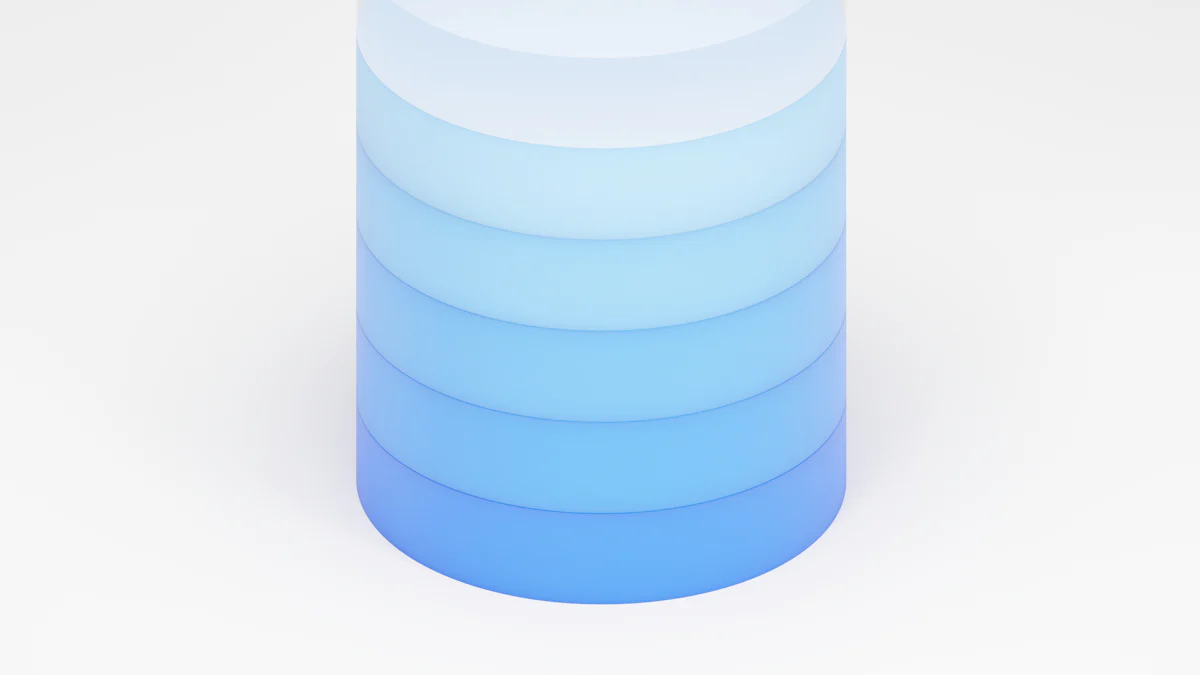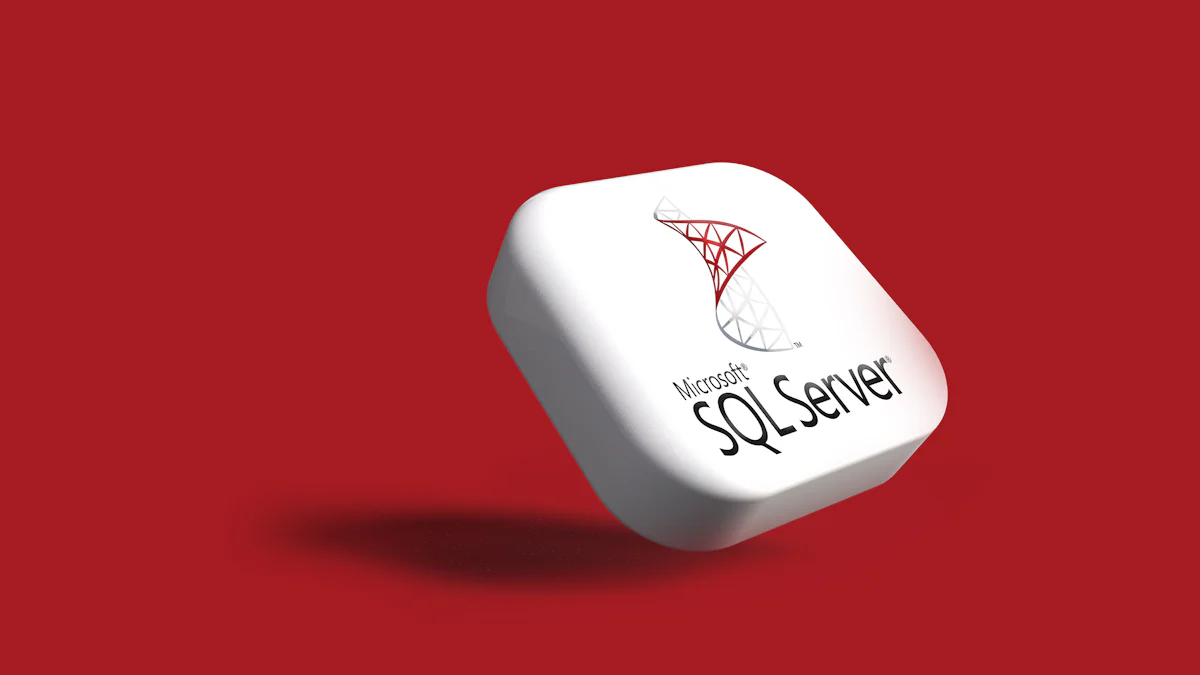What Are the Most Common Database Types Asked in Interviews
Try Aihirely for
Smarter Interview Prep
Experience real-time AI support tailored to your Resume.
Boost your confidence and ace every question with
AI Mock Interview.

Image Source: pexels
Have you ever wondered which database type used most in database interview questions? It’s a common topic, and for good reason. Databases are the backbone of modern applications, and understanding them can make or break your performance in technical interviews. You’ll often encounter three main types: relational, NoSQL, and specialized databases.
Why does this matter? The success of any software project depends heavily on choosing the right database. Knowing how each type works helps you make smarter decisions, which is exactly what interviewers look for. So, if you want to ace those interviews, it’s time to dive into the world of databases!
Key Takeaways
-
Learn about three main database types: relational, NoSQL, and specialized. Each type is used for different purposes and tasks.
-
Relational databases like MySQL and PostgreSQL work well with organized data. They keep data accurate and are often discussed in interviews.
-
NoSQL databases, like MongoDB and Redis, handle messy data easily. They are fast and grow well, perfect for quick applications.
-
Specialized databases, such as time-series and in-memory ones, solve special problems. They are great for tasks like tracking or quick data use.
-
Practice with projects to feel more ready. Create apps using these databases to answer interview questions better.
Relational Databases (SQL)

Image Source: unsplash
What Are Relational Databases?
Relational databases are like organized filing cabinets for your data. They store information in tables made up of rows and columns, where each table represents a specific entity, such as customers or orders. What makes them special? They allow you to connect these tables using primary and foreign keys, creating relationships between data points. This structure makes it easy to retrieve and analyze data, especially when you need detailed reports.
Unlike NoSQL databases, which handle unstructured data, relational databases focus on structured data. They’re perfect for situations where accuracy and consistency are critical. For example, if you’re working on a project that requires complex queries or detailed reporting, a relational database is your go-to choice.
Key Features of Relational Databases
Relational databases come with several standout features that make them reliable and efficient. Here’s what you should know:
-
Data Integrity: They enforce rules like primary and foreign key constraints to ensure your data stays accurate and consistent.
-
Structured Query Language (SQL): SQL is the standard language used to interact with relational databases. It simplifies data retrieval, updates, and management.
-
Scalability: While traditionally designed for vertical scaling, modern relational databases now support horizontal scaling for larger datasets.
-
Data Security: Features like access control, authentication, and encryption keep your data safe.
-
Backup and Recovery: Regular backups and recovery plans ensure your data remains intact, even during unexpected failures.
These features make relational databases a popular choice in technical interviews, especially when you’re asked about which database type used most in database interview scenarios.
Common Use Cases for Relational Databases
Relational databases shine in industries where structured data and accuracy are essential. Here are some common use cases:
-
Finance: They manage large volumes of financial data, ensuring real-time updates and precise reporting.
-
E-commerce: Relational databases handle customer data, orders, and product catalogs, enabling smooth shopping experiences.
-
Social Media: They store user profiles, social connections, and content, making personalized recommendations possible.
Their versatility and reliability make them a cornerstone in many applications. Whether you’re building a banking app or an online store, relational databases are often the first choice.
Examples of Popular Relational Databases
When it comes to relational databases, you’ve got plenty of options. Let’s explore some of the most popular ones you’re likely to encounter in interviews.
MySQL
MySQL is one of the most widely used relational databases, especially for web applications. It’s open-source, which means you can use it for free. Companies love it because it’s fast, reliable, and easy to set up. You’ll often see MySQL powering e-commerce platforms, content management systems, and even small-scale apps.
Fun Fact: Facebook started with MySQL as its primary database!
PostgreSQL
PostgreSQL, or Postgres, is like the Swiss Army knife of relational databases. It’s open-source and highly versatile. You can use it for everything from simple apps to complex data analytics. It supports advanced features like JSON data types and full-text search. If you’re working on a project that needs flexibility and scalability, Postgres is a great choice.
Tip: Interviewers might ask about PostgreSQL’s ability to handle both relational and non-relational data.
Microsoft SQL Server
Microsoft SQL Server is a favorite in enterprise environments. It’s known for its seamless integration with other Microsoft tools like Azure and Power BI. If you’re applying for a role in a company that uses Microsoft products, expect questions about SQL Server. It’s perfect for managing large-scale business data.
Oracle Database
Oracle Database is a powerhouse in the world of relational databases. It’s designed for high-performance applications and is often used in industries like finance and healthcare. Oracle offers features like advanced security and real-time analytics. While it’s not free, its robust capabilities make it worth the investment for many organizations.
SQLite
SQLite is lightweight and easy to use. Unlike other databases, it doesn’t require a server to run. This makes it ideal for mobile apps, embedded systems, and small projects. You’ll find SQLite in everything from smartphones to IoT devices.
Note: SQLite is a great choice for prototyping or when you need a simple, self-contained database.
Each of these databases has unique strengths. Understanding their features and use cases will help you stand out in interviews. Which one do you think fits your next project?
NoSQL Databases

Image Source: unsplash
What Are NoSQL Databases?
NoSQL databases are a modern solution for handling data that doesn’t fit neatly into rows and columns. Unlike relational databases, they don’t rely on a fixed schema. This flexibility makes them perfect for managing unstructured or semi-structured data, like social media posts or IoT sensor readings. They’re also built to scale horizontally, meaning you can add more servers to handle growing data loads.
If you’re working on a project with rapidly changing data models or massive amounts of information, NoSQL databases are a great choice. They’re optimized for speed and scalability, making them ideal for real-time applications like stock trading or social media platforms.
Quick Tip: Interviewers might ask how NoSQL databases differ from relational ones. Remember, NoSQL offers schema flexibility and horizontal scaling, while relational databases focus on structured data and vertical scaling.
Types of NoSQL Databases
NoSQL databases come in various types, each designed for specific use cases. Let’s break them down:
Document Databases
These databases store data as documents, often in JSON or BSON format. They’re schema-less, so you can easily adapt to changing data structures. Document databases are great for content management systems or applications requiring flexible data models.
Key-Value Databases
Key-value databases store data as simple key-value pairs. They’re incredibly fast and are often used for caching or session management. If you need quick lookups, this type is your best bet.
Graph Databases
Graph databases excel at managing relationships between data points. They’re perfect for social networks, recommendation engines, or any application where connections matter more than individual data points.
Column-Family Databases
These databases organize data into columns rather than rows, making them efficient for large-scale analytics. They’re commonly used in data warehousing and Big Data applications.
Key Features of NoSQL Databases
NoSQL databases stand out for their unique features:
-
Schema Flexibility: They support dynamic schemas, allowing you to modify data structures without complex migrations.
-
Horizontal Scalability: You can add more servers to handle increasing data loads, making them ideal for distributed systems.
-
High Performance: They’re optimized for low-latency access, ensuring quick responses in real-time applications.
-
Agile Development: NoSQL databases let you iterate quickly, which is crucial for modern, fast-paced development cycles.
These features make NoSQL databases a popular choice in interviews, especially when discussing which database type used most in database interview scenarios.
Common Use Cases for NoSQL Databases
NoSQL databases are incredibly versatile, making them a go-to choice for many modern applications. Here are some of the most common scenarios where they shine:
-
Internet of Things (IoT): NoSQL databases handle billions of data points from connected devices. They’re perfect for industries that rely on sensor data, like smart homes or industrial automation.
-
Digital Communication: Apps like Viber use NoSQL to process billions of real-time events daily. This ensures smooth communication and instant message delivery.
-
Fraud Detection: Financial services rely on NoSQL for real-time fraud detection. It efficiently manages high transaction volumes while identifying suspicious activities.
-
Big Data Analytics: NoSQL excels at processing massive amounts of unstructured data. It enables rapid analytics and helps businesses make real-time decisions.
-
Ecommerce: Online stores use NoSQL to manage vast inventories and handle high traffic. It ensures fast performance and a seamless shopping experience.
-
Content Management: NoSQL databases store diverse content types, from text to multimedia. They’re ideal for managing dynamic websites and digital assets.
You’ll also find NoSQL in mobile apps, social media platforms, and even cybersecurity. Its flexibility and scalability make it a favorite for handling complex, ever-changing data.
Examples of Popular NoSQL Databases
MongoDB (Document)
MongoDB is one of the most popular NoSQL databases. It stores data in JSON-like documents, making it easy to work with flexible and evolving data structures. Developers love it for building content management systems, real-time analytics, and mobile apps.
Pro Tip: Interviewers might ask about MongoDB’s ability to handle unstructured data. Highlight its schema-less design and horizontal scalability.
Redis (Key-Value)
Redis is a lightning-fast key-value database. It’s often used for caching, session management, and real-time analytics. If you’ve ever wondered how apps deliver instant responses, Redis is likely behind the scenes.
Fun Fact: Redis supports data structures like lists and sets, making it more versatile than a simple key-value store.
Neo4j (Graph)
Neo4j specializes in managing relationships between data points. It’s perfect for applications like social networks, recommendation engines, and fraud detection. If your project involves complex connections, Neo4j is the way to go.
Cassandra (Column-Family)
Cassandra is built for handling massive amounts of data across multiple servers. It’s a favorite for Big Data applications, offering high availability and fault tolerance. Companies like Netflix use Cassandra to manage their vast user data and streaming services.
Each of these databases has unique strengths. Understanding their features and use cases will help you confidently tackle interview questions. Which one do you think fits your next project?
Specialized Databases
What Are Specialized Databases?
Specialized databases are designed to handle specific types of data or unique use cases. Unlike general-purpose databases, these focus on solving niche problems with precision. Think of them as tools crafted for particular jobs, like a time-series database for tracking changes over time or an in-memory database for lightning-fast data access.
If you’re working on a project with unique requirements, a specialized database might be the perfect fit. These databases excel in areas where traditional relational or NoSQL databases might struggle. For example, they’re often used in industries like finance, healthcare, and IoT, where precision and performance are critical.
Types of Specialized Databases
Time-Series Databases
Time-series databases are built to handle data points indexed by time. They’re perfect for applications like monitoring stock prices, tracking weather patterns, or analyzing IoT sensor data. These databases optimize storage and retrieval for time-stamped data, making them incredibly efficient for trend analysis.
In-Memory Databases
In-memory databases store data directly in a system’s RAM instead of on disk. This makes them incredibly fast. You’ll often find them in applications requiring real-time processing, like gaming leaderboards or financial trading platforms.
Tip: If speed is your top priority, in-memory databases are hard to beat.
Ledger Databases
Ledger databases are designed for recording transactions in a secure, immutable way. They’re ideal for applications like blockchain, supply chain tracking, or financial auditing. These databases ensure data integrity and provide a transparent history of changes.
Key Features of Specialized Databases
Specialized databases stand out because of their unique features:
-
Data organization: They structure information to make navigation simple and intuitive.
-
Consistency: They reduce redundancy and ensure data accuracy.
-
Query efficiency: They allow precise and powerful data retrieval.
-
Scalability: They handle large datasets without compromising performance.
-
Reliability: They’re trusted for mission-critical applications across industries.
These features make specialized databases a go-to choice for solving complex, niche problems. If you’re preparing for interviews, understanding these databases can give you an edge. Which type do you think fits your next challenge?
Common Use Cases for Specialized Databases
Specialized databases are like superheroes for specific tasks. They’re built to handle unique challenges that general-purpose databases might struggle with. Let’s look at some common scenarios where these databases shine:
-
Real-Time Monitoring: Time-series databases track changes over time. They’re perfect for monitoring server performance, stock prices, or even weather patterns.
-
Gaming and Leaderboards: In-memory databases deliver lightning-fast responses. They’re ideal for real-time gaming stats or leaderboards where every millisecond counts.
-
Blockchain and Auditing: Ledger databases ensure secure, tamper-proof records. They’re great for tracking transactions, supply chains, or financial audits.
-
IoT Applications: Time-series databases handle the constant stream of data from IoT devices. They help analyze trends and detect anomalies in real-time.
-
Financial Trading: In-memory databases process high-speed transactions. They’re essential for stock trading platforms where speed is critical.
Pro Tip: Interviewers might ask how specialized databases differ from relational or NoSQL databases. Highlight their focus on niche use cases and optimized performance.
Examples of Popular Specialized Databases
InfluxDB (Time-Series)
InfluxDB is a go-to choice for time-series data. It’s designed to handle metrics and events, making it perfect for monitoring systems or IoT applications. You can use it to track server health, analyze sensor data, or even monitor cryptocurrency prices.
Fun Fact: InfluxDB uses a SQL-like query language called InfluxQL, which makes it easy to learn if you’re familiar with SQL.
Memcached (In-Memory)
Memcached is all about speed. It stores data in memory, so you get instant access. Developers often use it for caching, which helps reduce database load and speeds up applications. It’s a favorite for web apps, gaming platforms, and real-time analytics.
Quick Tip: Mention Memcached in interviews when discussing ways to improve application performance.
Amazon QLDB (Ledger)
Amazon QLDB is a fully managed ledger database. It’s built for applications that need a transparent, immutable record of transactions. Think of it as a blockchain without the complexity. You’ll find it useful for supply chain tracking, financial systems, or even healthcare records.
Did You Know? Amazon QLDB automatically scales to handle large volumes of data, so you don’t have to worry about performance.
Each of these databases has a unique purpose. Understanding their strengths will help you choose the right tool for your next project—or impress your interviewer!
Understanding the three main database types—relational, NoSQL, and specialized—can give you a significant edge in technical interviews. Relational databases like MySQL and PostgreSQL are essential for structured data, while NoSQL options like MongoDB and Redis excel in flexibility and scalability. Specialized databases, such as BigQuery and Snowflake, shine in niche applications like analytics and real-time monitoring.
Knowing their features and use cases helps you confidently discuss data management strategies and choose the right database for specific needs. This knowledge not only impresses interviewers but also boosts your confidence.
To prepare, try hands-on projects like building a web app with a relational database or creating a chat app using Redis. Practice common interview questions and explore resources like “50 Important Databases Interview Questions and Answers” to sharpen your skills. With the right preparation, you’ll be ready to tackle any question about which database type used most in database interview scenarios.
FAQ
What’s the difference between SQL and NoSQL databases?
SQL databases use structured tables with rows and columns, while NoSQL databases handle unstructured or semi-structured data. SQL is great for complex queries and consistency. NoSQL shines with flexibility and scalability, especially for real-time or rapidly changing data.
Which database type should I focus on for interviews?
Start with relational databases like MySQL or PostgreSQL. They’re the most commonly asked in interviews. Once you’re comfortable, explore NoSQL options like MongoDB and Redis. Specialized databases are less common but worth knowing for niche roles.
How do I choose the right database for a project?
Think about your data. Is it structured or unstructured? Do you need scalability or speed? Relational databases work for structured data. NoSQL fits unstructured data. Specialized databases solve unique problems like time-series tracking or real-time processing.
Are relational databases outdated?
Not at all! Relational databases remain essential for many industries, especially finance, healthcare, and e-commerce. They’re reliable, secure, and perfect for structured data. While NoSQL and specialized databases are growing, SQL databases still dominate in many applications.
How can I practice database concepts for interviews?
Build small projects! Create a blog app with MySQL or a chat app using Redis. Use platforms like LeetCode or HackerRank for database-related problems. Practice writing SQL queries and learn how to design schemas. Hands-on experience is the best teacher.
Pro Tip: Interviewers love real-world examples. Share a project where you used a database effectively!
